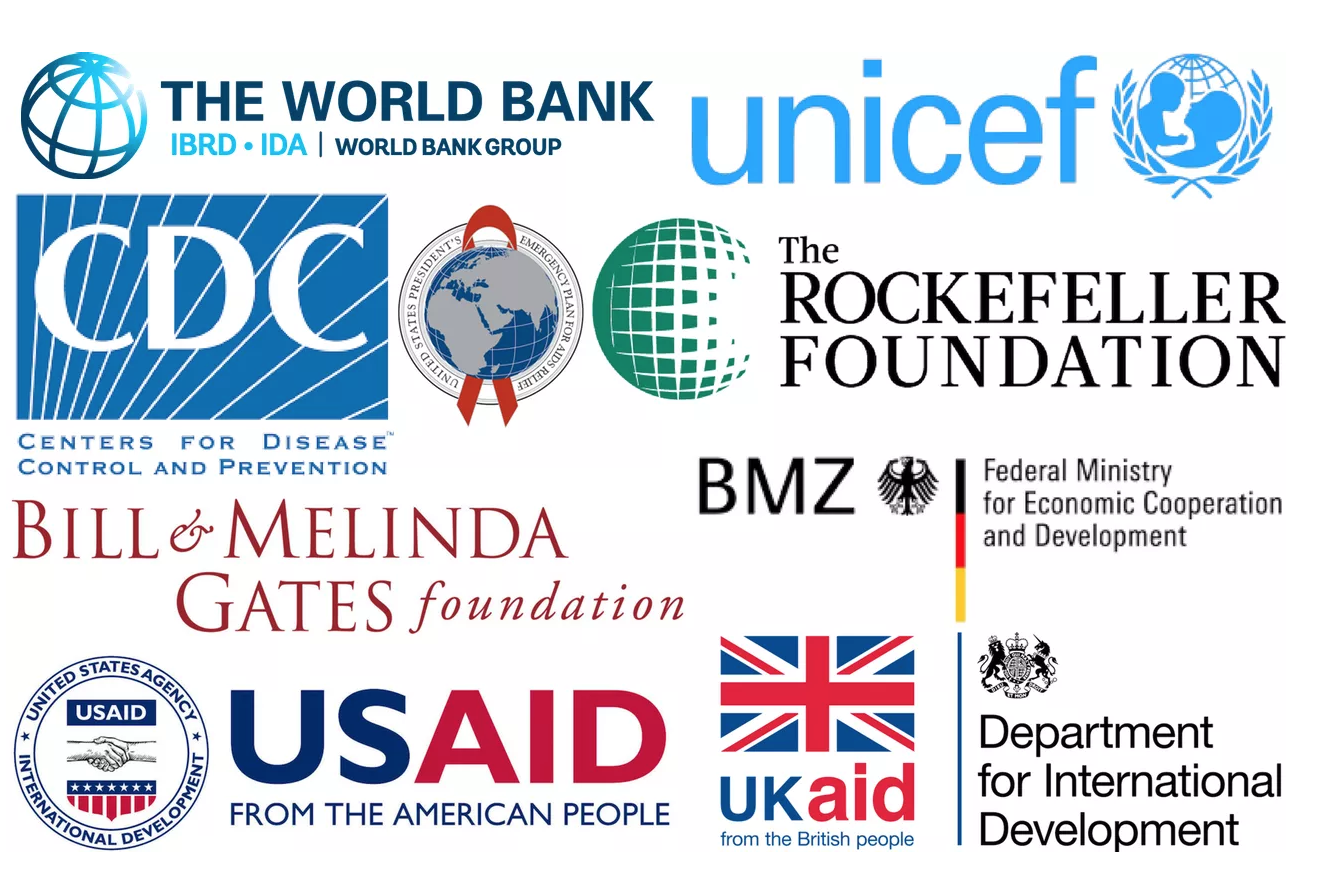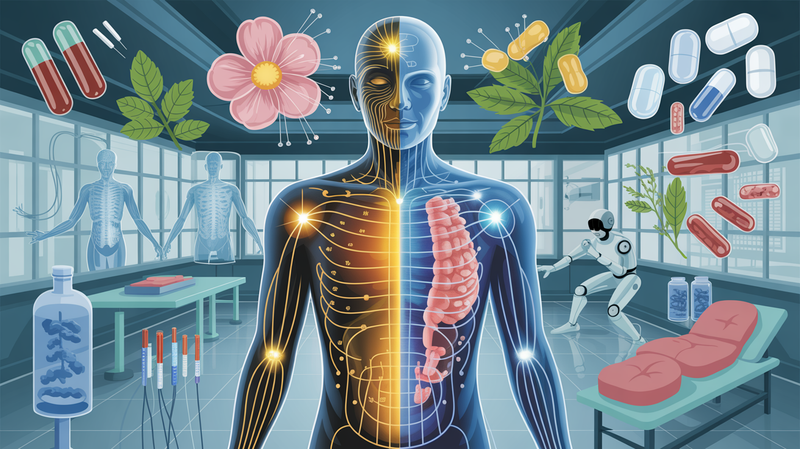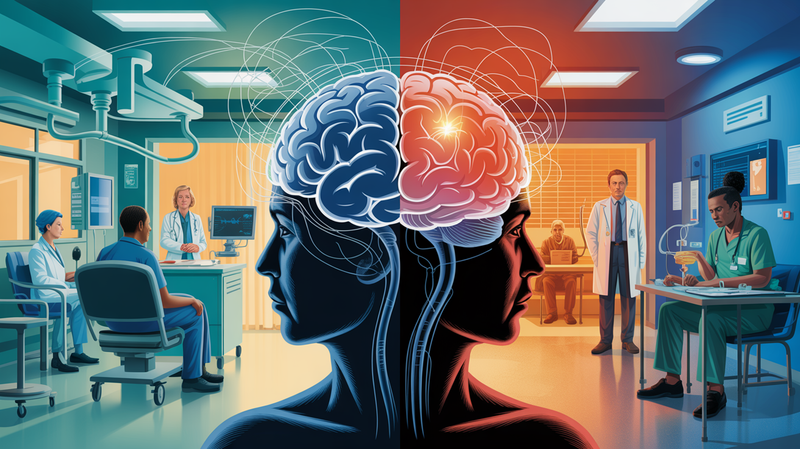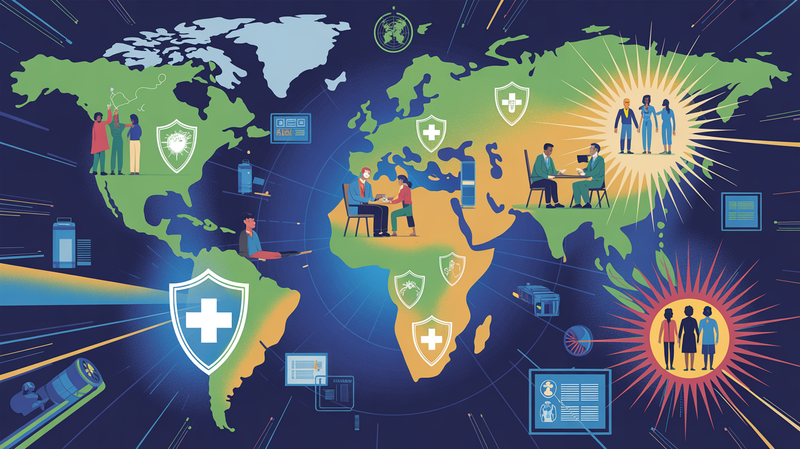Eternal Gatekeepers: How The WHO Turns the EU Covid Certificate Into a Global Standard
In June 2023, a pivotal shift in global health management was marked as the World Health Organization (WHO) announced the adoption of the European Union's (EU) digital Covid-19 certification system. The system was established to monitor and verify the vaccination statuses and testing outcomes, aiding global mobility and

In June 2023, a pivotal shift in global health management was marked as the World Health Organization (WHO) announced the adoption of the European Union's (EU) digital Covid-19 certification system. The system was established to monitor and verify the vaccination statuses and testing outcomes, aiding global mobility and enhancing public health safety. This unprecedented move provides the WHO with the power to activate the system whenever necessary, effectively turning it into a permanent global travel requirement.
This move has been in the making for quite a while, with the pandemic merely catalyzing the process. Early on, digital health companies backed by powerful foundations, such as The Commons Project supported by the Rockefeller Foundation, have been at the forefront of this global transition. As far back as 2020, these entities initiated the creation of health data management tools and platforms that would pave the way for the CommonPass app, aimed at permitting individuals vaccinated or with antibodies to travel internationally again.
In parallel, other tech giants joined the bandwagon. The Vaccine Credential Initiative (VI), which includes Microsoft, Salesforce, and Oracle, introduced the SMART Health Card by February 2022, which became the standard in several countries including the USA, Canada, Japan, and parts of Africa.
Simultaneously, the WHO, financed by the Gates and Rockefeller Foundations, developed guidelines for digital Covid-19 certificates. In a collaborative effort, the WHO commissioned T-Systems, a subsidiary of Deutsche Telekom, to create a technical framework for the international verification of digital vaccination certificates QR codes.
The EU Commission and national governments promptly adopted the digital health certificate system, a move that was uncharacteristically quick for the EU. IT corporations played a pivotal role behind the scenes, significantly contributing to the development and integration of this digital health infrastructure. The EU stood as a shining beacon, serving as the perfect candidate for the pilot project to introduce internationally harmonized health certificates.
This global digital transition may be perceived as a significant leap towards ID2020, a program aiming to provide a unique digital identity to every individual by 2030. The Gates and Rockefeller Foundations, significant financial backers of WHO's Covid certificate policy, also support this initiative. The end goal is the creation of interconnected mega-databases storing data on all individuals, providing a unique, unconfused identity and a trove of information about each person.
Ironically, the WHO's move seems to counteract its own guideline that states the private nature of individual vaccination statuses. It emphasizes the need for protections to prevent individuals from being forced to disclose their vaccination statuses. However, the reality is that these guidelines predominantly concern themselves with vaccination proof and fraud prevention, thereby implicitly acknowledging the significant disadvantages of not being able to provide proof of required vaccination.
In conclusion, it is evident that the WHO's move, while potentially enhancing global health security, is heavily influenced by its significant financial backers – a coalition of corporations, foundations, and governments. This move thus yields a wealth of valuable data for corporations and increased control over people for powerful governments. The adoption of the EU's digital Covid-19 certification system is a step towards a global digital health infrastructure that may redefine health security, personal privacy, and freedom of movement in the years to come.
Bridging the Digital Divide: How WHO's GDHCN System is Revolutionizing Global Health
In an age where digital innovations have become the backbone of numerous societal sectors, healthcare has not been left behind. The World Health Organization's Global Digital Health Community Network (GDHCN) system has been paving the way, demonstrating the transformative power of technology in delivering healthcare services across the globe. But the GDHCN is not just about implementing new technologies - it's a story of global cooperation, it's a revolution in bridging the gap between the haves and the have-nots, and it's a tale of hope for universal healthcare.
Since its inception, the GDHCN system has been developed with the keen technical expertise of the WHO’s team in collaboration with international partners and digital health experts. The technical prowess that these specialists brought to the project is reflected in the robustness and scalability of the system, which has been designed to adapt to the diverse needs of countries worldwide.
Among the pioneers in the utilization of this system have been nations such as Finland, Estonia, and South Korea - countries already recognized for their digital health prowess. These pioneers have proved instrumental, not only in adopting the technology but also in contributing to its evolution through their unique experiences and challenges.
What sets the GDHCN apart is its potential for impact at a global level. While we cannot pinpoint the first country or region where the system was first implemented due to its simultaneous roll-out in various parts of the world, it's safe to say that the influence of GDHCN is sweeping across continents.
The GDHCN system is more than just an innovation; it’s a catalyst for change in global health delivery. It is altering the landscape of medical care by integrating digital health strategies into existing healthcare systems, thereby enhancing accessibility, efficiency, and overall patient care.
Its potential applications are vast, from improving health data management to optimizing patient care pathways, from facilitating remote healthcare to enabling real-time disease surveillance. This digital transformation is not merely a trend but a necessity in an increasingly interconnected world, promising a future where quality healthcare is not a luxury, but a standard, available for all.
The story of WHO's GDHCN system, therefore, is not just about technological advancement, but about humanity's shared quest for better health. It’s a story of innovation, of cooperation, and most importantly, of the indomitable human spirit that ceaselessly strives to create a better, healthier world. And as the narrative unfolds, one thing is clear - this is only the beginning of a revolutionary journey in global healthcare.
Harnessing Trust in a Digital Age: WHO’s Groundbreaking Global Digital Health Certification Network (GDHCN)
In a world increasingly connected by digital technologies, our healthcare systems have been reshaped with the advent of the World Health Organization’s Global Digital Health Certification Network (GDHCN). This is a tale of resilience in the face of adversity, the ingenuity of global health communities, and an endeavor towards inclusive, accessible, and efficient healthcare services for all.
At the core of the GDHCN is a commitment to openness and transparency, with an open-source platform establishing a building block of digital public health infrastructure. This platform has been vital in the development of various digital products aimed at fortifying pandemic preparedness and promoting health equity across the globe.
As the COVID-19 pandemic swept across the globe, one of the key tools to reopen economies was digital COVID-19 test and vaccine certificates. Recognizing the crucial role of digital health solutions, the WHO swiftly published guidelines for such certificates, ensuring that the digital tools used to combat the pandemic were robust, trustworthy, and effective.
This pandemic also exposed the gap in a global mechanism for verifying the provenance of health documents, a problem that the GDHCN was designed to address. The network serves as an infrastructure cornerstone, supporting use cases such as digitizing international certificates of vaccination or prophylaxis, cross-border verification of prescriptions, and certification of public health professionals, among others. Thus, the GDHCN is not merely a technological platform; it is an instrument for strengthening global health security and promoting the continuity of care, irrespective of borders.
Drawing from the experience of regional networks for COVID-19 certificates and the European Union's Digital COVID Certificate system, the GDHCN is designed for seamless interoperability with existing systems. The platform's open-source nature allows for extensive flexibility and adaptability, ensuring its relevance and efficacy across a variety of contexts.
The GDHCN operates as a trust network, reflecting the established trust WHO maintains with its Member States. WHO serves as a "trust anchor," facilitating the bilateral verification of digital health records' authenticity without having direct access to the verification processes. Importantly, WHO does not have access to personally identifiable information, respecting and upholding the principles of data privacy and security.
The network builds digital trust between the WHO and each Member State, and in turn, between the Member States within the network. Member States submit their public keys into a WHO-managed directory, allowing for the secure sharing of these keys and the verification of health credentials issued by recognized authorities in the network.
Ultimately, the GDHCN signifies a paradigm shift in how we view and utilize digital health. It is not merely a reaction to the present crisis, but a proactive step towards building resilience for future health challenges. It exemplifies the true potential of digital health - harnessing the power of technology to not only react to health emergencies but to fortify the systems that keep us healthy every day. In the true spirit of WHO's mission, the GDHCN promises better health for all in an increasingly digital world.




